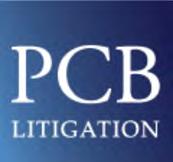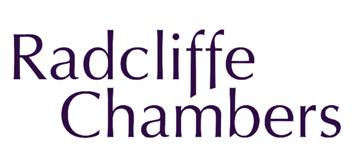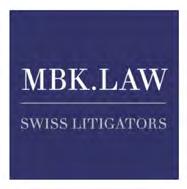










New, fresh, super-specialist but inclusive, FIRE International is the global Asset Recovery event not to be missed!
ThoughtLeaders4 FIRE would like to invite our readers to join us at FIRE International in Vilamoura, May 2021. Featuring speakers from all over the globe and set on Portugal’s sunny shores, there’s no better way to pursue knowledge and networking post-pandemic.
Find out more here FIRE International, Vilamoura, May 2021
In the meantime as the Summer of 2020 rolls on, with lockdowns relaxing in some countries and reinstating in others, travel around the world via our FIRE International issue featuring insight from practitioners in Kazakhstan, BVI, Isle of Man, UK, Singapore, Spain, Switzerland, and Hong Kong.
The perfect staycation read.
The ThoughtLeaders4 FIRE Team

Paul Barford
Founder / Director 020 7101 4155
email Paul

Chris Leese
Founder / Director 020 7101 4151
email Chris

Danushka De Alwis Founder / Director 020 7101 4191
email Danushka
Through our members’ focused community, both physical and digital, we assist in personal and firm wide growth.
Working in close partnership with the industry rather than as a seller to it, we focus on delivering technical knowledge and practical insights. We are proud of our deep industry knowledge and the quality of work demonstrated in all our events and services.
Become a member of ThoughtLeaders4 FIRE and...
• Join a community of experts, referrers and peers
• Immediately benefit from our Virtual Forward of events
• Attend events in all formats
• Interact using our digital Knowledge Hub
• Learn and share expertise through the Community Magazine
• Grow your network and business
• Build relationships through a facilitated Membership Directory
Héctor Sbert, Lawants (Spain)
Bakhyt Tukulov, Tukulov & Kassilgov Litigation LLP (Kazakhstan)
Pascale Köster, Walder Wyss Ltd. (Switzerland)
Ivan Dunjic, Walder Wyss Ltd. (Switzerland)
Abraham Vergis, Providence Law Asia (Singapore)
Danny Quah, Providence Law Asia (Singapore)
Bestlyn Loo, Providence Law Asia (Singapore)
Paul Muscutt, Crowell & Moring
Cathryn Williams, Crowell & Moring
Robin Darton, Tanner De Witt (Hong Kong)
James Wood, Denis Chang’s Chambers (Hong Kong)
Emma Ruane, Peters & Peters
Philip Gardner,
On Wednesday 15 July 2020, the Supreme Court handed down the much-anticipated decision in Sevilleja -v- Marex Financial, which has been termed by some as “the most important company law decision of recent times”. The decision handed down by the Supreme Court pares back the rule against reflective loss and confirms that the rule no longer applies to claims brought by pure creditors of a company. A minority of the seven-member panel went as far as questioning the need for the rule to exist at all.
This article considers the background to the case, the origins of the rule against reflective loss, the decision and its commercial impact moving forwards.
Mr Sevilleja owned and controlled two BVI companies, Creative Finance Ltd and Cosmorex Ltd, (the “Companies”) which accrued significant losses on forex trading accounts with Marex. Mr Sevilleja was the sole director shareholder of both entities. Marex successfully sued the Companies in the UK for those losses, before Field J.
Following circulation of the draft judgment by Field J on 19 July 2013, Mr Sevilleja stripped the Companies
of some $9.5m leaving them with insufficient assets to meet the judgment debt owed to Marex. The monies removed from the Companies’ accounts were transferred into Mr Sevilleja’s control, with the intention of defeating the judgment of Field J. The Companies were subsequently placed into liquidation in the BVI by Mr Sevilleja in December of 2013 with the purported debts of both exceeding $30m. But with nominal funds (little over $4,000) remaining in the accounts of the Companies, there existed virtually no possibility of Mr Sevilleja being personally pursued for the losses or of the loss of funds being fully investigated.
In 2016 Marex issued proceedings against Mr Sevilleja, in his personal capacity, in the Commercial Court for inducing or procuring a violation of Marex’s rights under the judgment of Field J, and intentionally causing loss by unlawful means (Mr Sevilleja had transferred the funds out of the accounts of the Companies in beach of his duties owed to both).
Following the bringing of the personal claim against Mr Sevilleja, Marex obtained permission to serve the claim out of the jurisdiction. Mr Sevilleja applied to set aside the order granting permission to serve out on the grounds that Marex did not have a good
claim against him, because the loss suffered by Marex as a creditor of the Companies was reflective of the loss suffered by the Companies themselves.
At first instance, Knowles J held that Marex’s claim was not barred by the rule against reflective loss. However, Mr Sevilleja was granted permission to appeal. Before the Court of Appeal, Marex’s claim for its judgment debt and consequential costs was barred on the grounds that such loss was reflective of the Companies’ losses, leaving only a claim for the remaining amounts incurred in related US proceedings. In giving their judgment all three of the Lord Justices (Lewison, Lindblom and Flaux) gave permission for Marex to appeal to the Supreme Court.
The rule against reflective loss stems from the rule in Foss -v- Harbottle [1843] 67 ER 189, that a company has its own legal identity and only the company has a cause of action in respect of wrongs done to it.
The rule itself was established in the case of Prudential Assurance Co Ltd -v- Newman Industries Ltd (No 2) [1982] 1 Ch 204, where it was held that a shareholder may not bring a claim for a diminution in the value of its
shareholding in a company against the defendant who has committed that losscausing wrong to the company. There, the Lord Justices held that:
“….what [the shareholder] cannot do is to recover damages merely because the company in which he is interested has suffered damage. He cannot recover a sum equal to the diminution in the market value of his shares, or equal to the likely diminution in dividend, because such a “loss” is merely a reflection of the loss suffered by the company. The shareholder does not suffer any personal loss. His only “loss” is through the company, in the diminution in the value of the net assets of the company, in which he has (say) a 3 per cent. shareholding. The plaintiff’s shares are merely a right of participation in the company on the terms of the articles of association. The shares themselves, his right of participation, are not directly affected by the wrongdoing. The plaintiff still holds all the shares as his own absolutely unencumbered property. The deceit practised upon the plaintiff does not affect the shares; it merely enables the defendant to rob the company.”
The rule was later expanded by Millet LJ in the case of Johnson -v- Gore Wood & Co [2002] 2 AC 1. There Millett LJ held that the rule should be extended to cover creditors of a Company who may wish to bring a claim against the defendant who committed a losscausing wrong to the company which owes the creditor a debt.
The exception to the rule against reflective loss was established in the case of Giles -v- Rhind [2003] Ch 168. There a former shareholder director in a company brought proceedings against a defendant who had conducted business in competition with that of the company. The company was unable to pursue the action in its own name due to impecuniosity caused by the defendant’s wrongdoing. The Court of Appeal allowed Giles to proceed to trial seeking recovery of a variety of losses, including the loss of the value of his shares.
The Court of Appeal allowed this case to proceed, on the grounds that it would be unjust to allow a wrongdoer to defeat a claim by shareholders on the basis that the claim was trumped by a right of action held by the company which his own wrongful conduct had prevented the company from pursuing. However, the test of “impossibility” for the company to bring the action in its
name was a prohibitively high one and the exception has been applied sparsely since this decision.
The seven-member panel unanimously allowed Marex’s appeal. Lord Reed delivered the leading judgment (with which Lady Black and Lord LloydJones agreed). Lord Hodge gave a separate judgment, but agreeing with the reasoning of Lord Reed. Lord Sales delivered a separate judgment allowing the appeal on a wider basis and went as far as questioning the justifications for the rule against reflective loss and whether it should continue to be recognised. Lady Hale and Lord Kitchin agreed with this judgment.
The entire panel were agreed that the reflective loss principle had been expanded too greatly and that it should not apply to Marex’s case where it was a pure creditor of Mr Sevilleja’s companies and not a shareholder. Lord Hodge encapsulated the essence of the decision in saying (at paragraph 95 of the judgment) that
“….the expansion of the so-called “principle” that reflective loss cannot be recovered has had unwelcome and unjustifiable effects on the law and that, if the facts alleged by Marex are established in this case, the exclusion of the bulk of its claim would result in a great injustice.”
The decision provides welcome protection for pure creditors of a company and acknowledges the fundamental difference in relationship with the company as between creditors and shareholders. Shareholders, participating in the rise and fall in the company’s fortunes, remain a well protected class with access to statutory procedures such as an unfair prejudice petition (s. 994 Companies Act 2006) or a derivative action (ss. 260 - 264
Companies Act 2006) where their interests are damaged by an action of the Company or its directors. Creditors, enjoying a more arm’s length relationship with the company, are now protected by a course of action against wrongdoers who render their debt devalued or worthless. Until this decision very often their remedies were limited to putting a company into liquidation and allowing a liquidator to pursue claims or potentially pursuing claims under section 423 Insolvency Act 1986.
The judgment clarifies what up until this point had been an eclectic mix of decisions concerning the application of the rule and the corresponding exception under Giles -v- Rhind (now confined as a relic of case law) and brings lucidity, so far as creditors are concerned, to an often complex area of company law.
However, the obiter comments of Lord Sales, suggesting that the loss suffered by shareholders in their personal capacity did not always “reflect” the loss of the company, throws open the possibility of shareholders in future advancing a cause of action against a third party who has caused them loss in their capacity as shareholders. There now exists the intriguing possibility of a shareholder being able to claim against a director or other third party such as banker or auditor for a loss in value of their shareholding attributable to the actions of that director.
Prior to his joining Keidan Harrison, Kit was part of the team acting for the successful Appellant, Marex Financial, in the Supreme Court proceedings

The Eastern Caribbean Court of Appeal has determined that the BVI Court has no jurisdiction to grant freestanding injunctions in aid of foreign proceedings: how long will it be before the legislature rectifies this, and will it be the impetus needed to resolve other lacunae in BVI law?
On 29 May this year, the Eastern Caribbean Court of Appeal handed down its judgment in Broad Idea International Limited v Convoy Collateral Limited (BVICMAP 2019/0026)
In the lead judgment of Dame Pereira CJ, the Court of Appeal reversed the BVI Commercial Court’s decision in Black Swan Investments ISA v Harvest View Limited (Claim No BVIHCV 2009/399), ruling that the court had no jurisdiction to make what are now referred to as ‘Black Swan’ orders. While the court noted that its decision may appear undesirable in the current climate, it commented that legislative intervention was required to resolve the issue.
In the 2009 Black Swan case, the BVI Commercial Court determined it had the jurisdiction to make a freestanding injunction against a BVI company, even though that company was not a party to substantive proceedings either in the BVI or elsewhere and was not likely to be in the future. The essential aim of the injunction was to preserve assets in aid of foreign proceedings against a third party who was alleged to be the beneficial owner of the assets held by the BVI company; and where the principal involved poses an asset flight risk.
Convoy Collateral Limited (“Convoy”) is a company incorporated in Hong Kong. It commenced proceedings against an individual named Dr Cho in Hong Kong. Dr Cho is a 50.1% shareholder of Broad Idea International Limited (“Broad”), a BVI company. Convoy applied to the BVI court for a freezing injunction against Dr Cho and Broad in aid of the Hong Kong proceedings.
The BVI Commercial Court initially granted the injunctions against both Broad and Dr. Cho, but the Court of Appeal had already set aside the
freezing injunction against Dr Cho for want of jurisdiction before proceeding to consider the injunction granted against Broad. The injunction against Broad restricted its ability to deal with its shareholding or reduce its net assets below a set level.
The primary issue was whether the BVI Commercial Court had the jurisdiction, in the absence of enabling legislation as found in other jurisdictions, to freeze the assets of a third party over which it had personal jurisdiction (as a BVI company), but not subject matter jurisdiction, in aid of foreign proceedings. Importantly, Broad was not a party to the proceedings in Hong Kong or elsewhere, and there was no indication that it would be made a party to the Hong Kong proceedings in the future.
Why did the Court of Appeal determine the BVI Court had no jurisdiction to issue Black Swan orders?
Having examined the Black Swan decision, the Court of Appeal was critical of Justice Bannister QC’s
reliance on the dissenting judgment of Lord Nicholls in Mercedes-Benz A.G. v Leiduck [1995] 3 All ER 929
The court noted the majority decision in Mercedes-Benz confirmed that in the absence of enabling legislation, a freezing injunction was not a cause of action and could not be obtained in the absence of substantive proceedings against the respondent. The Court of Appeal stated that it was not open to the Commercial Court to depart from the majority decision and fix the lacunae in the local law by relying on a dissenting opinion.
The Court of Appeal also noted that the Commercial Court had no enabling legislation to allow it to make freestanding interlocutory injunctions in aid of foreign proceedings. Section 24 of the Eastern Caribbean Supreme Court (Virgin Islands) Act (Cap. 80) did not provide the court with the power to make injunctions in aid of foreign proceedings.
The Court of Appeal noted that in other jurisdictions the legislature has taken steps to authorise the courts to issue injunctions in aid of foreign proceedings. In England and Wales, the legislature has passed s.25 of the UK Civil Jurisdiction and Judgements Act 1982. In the Cayman Islands, the courts are empowered under s.11A of the Cayman Islands Grand Court Law (2015 Revision) in the following terms:
11A. (1) The Court may by order appoint a receiver or grant other interim relief in relation to proceedings which-
(a) have been or are to be commenced in a court outside of the Islands; and
(b) are capable of giving rise to a judgment which may be enforced in the Islands under any Law or at common law.
The Court of Appeal also highlighted that the BVI Arbitration Act 2013, which post-dates the Black Swan judgment, expressly grants the power to arbitrators to grant interim relief in aid of foreign proceedings under s.43(2):
“On the application of a party, the Court may, in relation to any arbitral proceedings which have been or are to be commenced in or outside the Virgin Islands, grant an interim measure.”
Thus, litigants engaged in arbitration proceedings in the BVI have an extra tool in their armoury compared with those litigating before the courts of the BVI, where a local cause of action against an asset holding respondent would need to be established to freeze those assets.
Given the above examples, the Court of Appeal concluded that:
“[50]
…that the courts of the BVI, though having in personam jurisdiction over Broad Idea, being a BVI registered company, have no subject matter jurisdiction to grant a free standing interlocutory injunction against it in aid of foreign proceedings, there being no statutory basis for the exercise of such a jurisdiction. It is for the Legislature of the BVI to step in and clothe the court with such authority.”

While it is for the BVI government to determine whether it wishes to pass the required enabling legislation, it is clear that any legislation could be prepared relatively swiftly given the minor amendments required and the numerous existing examples in other jurisdictions. Drafting a new law could also be a good opportunity to engage with the BVI community regarding other gaps in the law ripe for amendment. The BVI Bar Association has put together a draft Bill to enact an amendment to s.24 to the Supreme Court Act (BVI) to resurrect the Black Swan jurisdiction – and to clarify that disclosure orders can be granted by the BVI High Court in aid of foreign proceedings. We would expect to see that the BVI Government will look seriously at rapidly passing this draft Bill.
There is also an appetite in the BVI for progressive legislation, as evidenced by the recent enactment of the Charging Orders Act 2020. This legislation recognised that certain debtors may use BVI companies to conceal assets via layered corporate asset protection structures. It extended the court’s powers to pierce the corporate veil in reverse and charge those assets upon presentation of an enforceable judgment – if the ultimate beneficial owner of those assets is a judgment debtor. These newly granted powers would have seemingly gone handin-hand with the now-defunct asset preservation powers that BVI courts formerly held under Black Swan jurisdiction.
Commercially, our team consider it likely that the BVI legislature will soon take steps to resolve the lacuna in the law left by the Court of Appeal’s recent judgment. Until this gap in the legislation is resolved, claimants around the world who discover assets beneficially owned by obligors and concealed in or protected by a BVI company will be potentially disadvantaged.
In a fast-paced and ever-changing world, agility is crucial. Our clients rely on our knowledge, expertise and drive to achieve the best possible outcome. This skill comes from years of dedication and a relentless commitment to putting our clients first, every time.
Campbells is widely recognised for the strength of its highly regarded litigation practice. We have one of the largest specialist litigation teams, and routinely act in the most significant, high-value and complex disputes in both the Cayman Islands and the British Virgin Islands.

For more information contact: Guy Manning, Head of Litigation, Insolvency & Restructuring E: gmanning@campbellslegal.com

Authored by: Paul Muscutt and Cathryn Williams – Crowell & Moring
There is always one offer that is more attractive than others and catches your eye. And of course, that deal is always only available for a short time and you must act quickly. A 50% off or ‘BOGOF’ supermarket offer is risk free and uncomplicated. Attractive offers in the world of financial investments however, should be treated with extreme caution.
In the past few years there has been a number of creative investment schemes ranging from platform crowd funders, corporate mini bonds to the more complicated collective investment schemes. Not all such schemes are regulated investments under the Financial Services and Markets Act 2000 (FSMA) and many promotors of the scheme are also not regulated by the Financial Conduct Authority (FCA). If they are not regulated, it may be difficult for an investor to claim compensation under the Financial Services Compensation Scheme (FSCS) if things go wrong.
How can an investor make sure they do not draw the short straw when choosing an investment?
How can an investor make sure they do not draw the short straw when choosing an investment? Well, a number of them have quite a few features in common.
Suspicious investments tend to have similar features. They may have professional looking glossy marketing brochures, high tech websites and promise “guaranteed” returns which are better than market standard and higher than most other investments available. But note - if a deal appears too good to be true, it usually is. It is likely that the investment will be sold as a “hands
off” investment where investors can sit back, relax and let the scheme operator do all the work whilst the guaranteed returns flow into the investors’ accounts. Indeed, those return are initially paid very promptly - until the business model starts to collapse. Another fairly common feature is “the buy-back guarantee”, the purpose of which is to reassure the investor that there is an exit available in the future. These buybacks typically cover the price paid for the investment + glittering 10% - 25% uplift.
In many cases it is difficult to find out exactly what stands behind the promoter, seller or mastermind of the scheme. There is often a large corporate structure which is meant to give the appearance of a secure and large group business. But most will be shell companies with no assets or foreign registered entities so as to ensure little transparency. The finances of the business will also be complex and are likely to involve many different lenders which will make the position very difficult to unravel when the carousel stops.
Before an investor parts with their hardearned cash into what may appear an attractive scheme, they should consider:
1. Who is behind the scheme? Look into the corporate structure and the individuals involved. Ask for filed accounts and management accounts audited by an identifiable and regulated accountancy practice. There is also wealth of information available on the internet including governance sites, review sites and scam busting sites (see Companies House - https://beta. companieshouse.gov.uk/ Land Registry - https://www.gov.uk/ search-property-information-landregistry , scam alert websites such as https://safeorscam.net/ or https:// scambusters.org/;
Suspicious investments tend to have similar features. They may have professional looking glossy marketing brochures, high tech websites and promise “guaranteed” returns which are better than market standard and higher than most other investments available. But note - if a deal appears too good to be true, it usually is.
2. Where the investment involves a purchase of a leasehold interest in a plot, car park or rooms in a building, in return for a guaranteed “rent”, make sure the underlying business is operating by making a physical visit (or get a local agent to do this for you if you are investing from abroad). Run checks on the internet, at Companies
In many cases it is difficult to find out exactly what stands behind the promoter, seller or mastermind of the scheme.
House and in Directory Enquiries online to check the business is in existence and operating. If the business is not yet operational, ask how the rent will be funded if the asset is not trading and generating income. Payment of guaranteed rent when the business is not operating is a hallmark of a Ponzi Scheme (i.e. rent monies are being paid to old investors from the proceeds received from new investors). Any such guarantee should raise a red flag that something is not right;
3. Check if the parties promoting the scheme are regulated by the FCA - you can search the names here https://register.fca.org.uk/;
4. Ask the firm behind the scheme to provide a list of the total deductions which will be made from your investment capital and advise how much will be invested directly in the product. If one has not been given, ask to see a valuation of the product you are buying; and
5. If a “buy back guarantee” is offered, ask what finances are in place to fund such promises.
Doing a bit of due diligence before investing can result in the most valuable dividend being deliveredthe avoidance of a risky or fraudulent scheme where investors lose all their capital. The cost of such enquiries will not be significant.
Before investing in financial schemes or products, Investors should consider instructing a regulated adviser or solicitor to advise on the investment. The advice may be caveated, but experts are likely to identify issues and raise key questions for the investor to consider before investing. Moreover, if advisers fall short on their duty to advise, at least investors may have some additional recourse through the FSCS or the solicitor’s professional indemnity insurance in the event things go wrong.
If you think you may have invested in a suspicious scheme, seek advice from your solicitor or financial adviser to assess your options. You may also wish to report the scheme to the FCA.




“For criminals, the confusion, distraction and vulnerability stemming from (the Covid19) crisis spells opportunity… Fraud trends are rapidly emerging as bad actors look to turn a quick profit on the global pandemic” - Forbes (10 April 2020)”
Singapore’s role in catalysing international business flows within South East Asia has resulted in increased exposure to the risks of a dynamic cross-border environment.
According to PwC’s Economic Crime and Fraud Survey 2020, 42% of Singapore-based companies experienced incidents of fraud over the last 24 months. This is converging towards the global average of 47%. PwC posits that Singapore’s regional exposure is likely to be one of the drivers of its growing economic crime and fraud rates.
While there are civil remedies that victims of fraud can avail themselves of to recover the proceeds of fraud, there are occasions where Singapore’s law enforcement authorities will also commence criminal investigations and prosecution against the fraudsters.
This is particularly so when the fraud involves large-scale investment fraud schemes, or individuals cheating or committing criminal breach of trust offences against their employers or business partners.
In such cases, the police will likely invoke their powers of seizure under
section 35 of the Criminal Procedure Code (“CPC”) to seize the property or proceeds of the fraud and hold on to the same until the conclusion of the criminal inquiry or proceedings against the fraudster.
When this occurs, what can claimants do to effectively recover assets seized by the police?
We describe some of the steps to do so below.
First, a claimant should make his or her interest in the seized assets known to the police at the earliest opportunity.
While the police are usually very thorough in their investigations, and will likely contact all claimants to record their statements, it is prudent for a claimant to take proactive steps to follow up with the police on the status of their investigations or criminal proceedings.
A person who has an interest in the seized property should make enquiries with the police, and thereafter to assert an interest in the property. This is because there can be a great variety of interests in the seized property and it would be difficult and impractical for the police to identify all the persons who might possibly have a claim to the seized property.
Once a claimant does so, he or she will be entitled to be given notice of the hearing dates for the Disposal Inquiry.
Second, a claimant should seek further information concerning the seized assets by requesting for a copy of the investigation report.
Under section 370 of the CPC, the police officer in charge of the investigations is required to tender an investigation report to the relevant court when he or she considers that the property is either (i) no longer relevant for the purposes of any investigation, inquiry, trial or other proceeding, or (ii) one year after the date of seizure of the property, whichever is earlier.
A person with a right to be heard at the Disposal Inquiry has a prima facie right to view the contents of the investigation report. This is not an absolute right and will be weighed against any potential prejudice to the public interest which the disclosure of sensitive information may cause.
The investigation report is a useful source of information for claimants as it typically contains a list of items for disposal, a list of potential claimants (although this is not conclusive), and describes the investigations conducted by the investigating officer. The investigating officer may also set out his or her proposed distribution of the seized properties in the investigation report.
It is important to review the investigation report closely to check if the information provided is correct as there may be aspects of the investigation report that can be challenged by the claimant.
Third, the claimant should try to negotiate with the other claimants to come to a settlement between themselves.
This is a good option to pursue if each claimant’s entitlement to the seized assets is not seriously disputed. If the competing claimants are able to reach a settlement, this can be recorded by the Court as a consent order at the Disposal Inquiry.
On occasion, the Court itself may take the initiative to encourage the claimants to negotiate a settlement among themselves for the distribution of the seized assets.
Under exceptional circumstances, a claimant may make an application to the Court under section 35(8) of the CPC for an early release of the seized property prior to the Disposal Inquiry if he can show that he is under hardship and needs the money to cover his basic expenses, reasonable professional fees or service charges, or other extraordinary expenses.
If the claimant is a company, it can also apply for a release of the property to cover any day-to-day operations of the company.
It is also of interest to note that where the claimant has already obtained a default judgment in a civil suit against the fraudster, the Court is also empowered to release the property to the claimant (provided that the judgment was obtained before the said property was seized).
If a claimant chooses not to settle out of court, it is possible for the claimant to take his or her chances in the Disposal Inquiry itself to recover the seized assets. However, there is the risk that the Court may decide on a distribution of assets that may be different from what one might expect.

The reason for this is that a Disposal Inquiry is a quick and informal hearing where the Court’s objective is merely to distribute the seized assets which the police no longer need or have use for. The Court will not be interested in conducting a lengthy hearing to make a conclusive determination of title. A civil proceeding will be the appropriate forum for determining competing ownership interests.
At the Disposal Inquiry, the claimant must prove his or her interest in the property on the standard of a prima facie case, taking into consideration the following factors where applicable:
(a) the nature and type of interest claimed in the seized property;
(b) where there are claims by multiple parties, the relationship between each party claiming an interest in the property; and
(c) whether documentary evidence of the interest in property is normally available, and if so, whether such evidence is produced.
In the typical Disposal Inquiry, there will be no procedure for discovery or inspection of documents. However, the Court may give directions for claimants to exchange statements pertaining to their respective interests in the property prior to the hearing or documentary evidence relevant to their claims prior to the hearing. The Court may also direct the claimants to tender their respective list of witnesses and bundles of documents to be used at the Disposal Inquiry. The claimants must tender the evidence they will be relying on at the hearing of the Disposal Inquiry through the relevant witnesses.
At the hearing of the Disposal Inquiry, the investigating officer will be called to produce his or her investigation report. The claimants will then have the opportunity to cross-examine the investigating officer on his or her report, especially if they disagree with the investigating officer’s proposed manner of distribution. Each of the claimants will then have the opportunity to call their witnesses and have their witnesses cross-examined. At the end of the hearing, the Court may direct claimants to tender written submissions.
The Court is given broad discretion to make its decision, looking to the facts of each case to ascertain the party who is entitled to possession. Where entitlement to possession is difficult to ascertain, and there are competing claims due to factual complexities, a court will adopt a “rough and ready” approach and make an award in favour of the party it thinks has a better right to possession.
It is a common misconception that when matters are with the law enforcement agencies, a claimant can just sit back and wait for the criminal inquiries or proceedings to conclude, and that he or she will eventually receive back all the stolen assets from the Court. This is far from the truth.
Fraudsters often cheat other claimants as well by using the same property stolen from the original claimant, i.e., by transferring a portion of a new investor’s capital to an earlier investor to give the illusion of being able to pay out high dividends from the fraudulent scheme.
As such, claimants should be proactive in taking steps to recover their stolen assets. Otherwise, there is a risk that they may not recover much or anything at all.

“Absolutely first-class…extremely knowledgeable, analytical and thorough.” Chambers and Partners
“One of the first City law firms to develop a key multi-disciplinary approach, allowing the firm to act for corporate and individual clients in fraud-related cases that require both civil and criminal expertise.” The Legal 500
International criminal and civil fraud services include:
• Dawn raids
• Internal investigations
• Private prosecutions
• Alternative Dispute Resolution
• SFO, FCA, HMRC, DoJ, SEC
• Employee fraud

Jonathan Tickner
International asset tracing and recovery services include:
• Multi-jurisdictional expertise
• Worldwide freezing and disclosure orders
• Third party disclosure orders
• Search and seizure
• Passport orders
• Securing and enforcing foreign judgments
t: 020 7822 7766 e: jtickner@petersandpeters.com
Maria Cronin / Partner
t: 020 7822 7737 e: mcronin@petersandpeters.com w: www.petersandpeters.com


The two recent judgments in Les Ambassadeurs Club Limited -vSheikh Salah Hamdan Albluewi [2020] EWHC 1313 and 1368 (QB)
There is little doubt that the interim remedies available in English litigation, including disclosure and freezing injunctions pursuant to Part 25 of the Civil Procedure Rules, are some of the most attractive weapons in international litigation. Claimants are often eager to make use of these tools in order to pin down recalcitrant defendants and secure assets as swiftly as possible.
The recent judgments of Mr Justice Freedman in Les Ambassadeurs Club Limited -v- Sheikh Salah Hamdan Albluewi [2020] EWHC 1313 and 1368 (QB) provide important further guidance on the careful attention litigants should pay to issues of proving a risk of dissipation, what the Court might consider material non-disclosure and the cost consequences of a discharged freezing order.
The judgments in Les Ambassadeurs Club Limited -v- Sheikh Salah Hamdan Albluewi concern a debt said to be owed to the claimant (“the Club”),
a well-known and exclusive private gambling club in Mayfair, by the defendant (“the Sheikh”), a high-profile and successful Saudi businessman.
The Club contends that the Sheikh, who had been a member for many years and made use of the Club’s facilities while spending his summers in London, had incurred gambling debts of £2 million and the cheques presented in satisfaction of those debts had bounced. It was further said by the Club that the Sheikh had become unreachable having ‘gone to ground’ in Saudi Arabia, where such a debt was unenforceable by nature of the prohibition on gambling in the Shariah.
The Club were granted a worldwide freezing order on 6 February 2020 by Mr Justice Cavanagh (“the WFO”), which was continued in amended terms by Mr Justice Waksman on 17 February 2020. The Sheikh’s application to discharge the WFO was heard on 23 April 2020, with judgment handed down on 22 May 2020. A consequential costs judgment was handed down on 28 May 2020.
The Sheikh sought the discharge of the WFO on various grounds, but principally on the basis that there was (and had
been at the time of the grant of the WFO) no real risk of dissipation and that the Club had not given full and frank disclosure of material facts.
As practitioners will be aware, any claimant applying for a freezing order must demonstrate to the Court that there is a real risk, judged objectively, that a future judgment would not be met because of an unjustified dissipation of assets. The Sheikh argued that this threshold had not been met because of factors including:
1. A lack of commercial probity (rather than dishonesty) does not demonstrate a real risk of dissipation – the Club had disavowed a suggestion of dishonesty against the Sheikh (albeit it maintained a recklessness charge that would lead to the same conclusion and was discounted by the Court), leaving the Court to consider the impact of the fact that – as the Sheikh admitted – he had various unpaid gambling debts to London casinos which, combined with his unpaid debt to the Club, suggested that he incurred debts
that his cash flow could not meet. This behaviour was indicative in the Court’s view of a lack of commercial probity.
2. Significant assets in the jurisdiction and/or in closely connected jurisdictions are inconsistent with a real risk of dissipation – The Sheikh’s asset disclosure demonstrated that he had beneficial interests, held through Jersey companies and fixed trusts, in very significant assets (of at least £100 million), including a property worth some £45 million in London,. The Court noted that, notwithstanding the indirect nature of such holdings, there was no reason to believe that the ownership structure was anything other than a normal and legitimate way for the Sheikh to deal with his assets. Further, such assets were held in a jurisdiction that was highly amenable to the English Court’s jurisdiction. Interestingly, in this respect, the Club’s failure to seek to enforce the WFO in Jersey was likely prejudicial as the Court considered that this could evidence the (in)utility of the WFO going forward.
3. Previous failures to honour cheques – As discussed in greater detail below, the Sheikh noted that, on two previous occasions there had
been delay in paying monies due to the Club, including the similar dishonouring of cheques. This suggested that the Sheikh’s non-payment on this occasion should not be viewed as representing a real risk of dissipation, but more of someone who habitually delays discharging his debts.
4. That the Sheikh had not ‘gone to ground’, he had simply returned home from a holiday – The fact of the Sheikh’s return to Saudi Arabia was not probative in circumstances where he was engaging in his usual practice of summering in London and returning home for the rest of the year. In addition, the Club could not rely on the unenforceability of the debt in Saudi Arabia against the Sheikh in circumstances where his nationality and residence were known and they had agreed to do business with him knowing of that risk.
In all the circumstances, the Court held that ‘evidence of a fuller and difference complexion from that which was before the Court at the without notice stage’ meant that the burden of showing a risk of dissipation was not met. This would be of considerable and, from the Club’s perspective, fatal significance in the context of considering whether to re-grant the WFO even if it had to be discharged.

The Court was required to consider five potential material non-disclosures as well as a typographical failure to properly reproduce the standard form order for the WFO despite assuring the Court that the Club had done so.1
The alleged material non-disclosures were (i) the Sheikh’s historic gaming debts to the Club and delays in payment (ii) the fact that ‘going to ground’ in this case meant simply returning from holiday (iii) the Sheikh’s close connections to London (iv) failure to draw attention to the weaknesses in the Club’s case on dissipation and (v) a failure to distinguish the case of Stronghold Insurance –v- Overseas Union [1996] LRLR 13 on which the Club relied heavily. The Court did comment that the phrase of ‘gone to ground’ was ‘imprecise’ and ‘added to the transformation of the customer of good standing to defaulter which was not in fact a fair or accurate characterisation’. That said, this was not non-disclosure of the type required, and nor was the failure to put the Sheikh’s gloss on the Stronghold Insurance case
The areas which were held cumulatively to constitute a failure to provide full and frank disclosure were points (i), (iii) and (iv).
The Court held that the fact of the Sheikh’s previous defaults and the subsequent increases in credit granted by the Club were significant. It contrasted significantly with the impression given before Mr Justice Cavanagh in granting the WFO that the Sheikh had been a member in good standing since joining in 1993 and that the latest default was wholly out of character. The Court made clear that it did not consider the non-disclosure to have been in bad faith (the Club having contended that it thought it would have been gratuitously prejudicial to the Sheikh to include such information), but that it gave rise to a false and misleading impression to the Court. The Court also noted that it was not for the Club to decide on the relevance of the Sheikhs previous defaults: It was for the court on the without notice hearing to have the relevant material and to make the decision for itself. It is of practical note that the Court criticised the parties for failing to produce a transcript of the without notice hearing, not least because, at one point, the
Club asserted that its counsel may have referred to the Shiekh’s defaults at the hearing, while the Sheikh sought to rely upon what he said were material nondisclosures at the hearing.
The Court also considered that the representation of the Sheikh’s connection to London had not been fairly presented. Specifically, while the Sheikh’s property in London was mentioned in an affidavit supporting the application for the WFO (having been visited by a representative of the Club) there was no indication of its significance in terms of value and status, which the Court found strongly indicated the Sheikh’s lasting connection to the jurisdiction. To this end, it is notable that, while the purchase price did appear ‘buried’ in a large exhibit, the Court considered that its attention should have been drawn to this point. As it was, the Court ‘might have inferred that the property was nothing more than a London pied-aterre, and not a property purchased for such a large price’. The fact of the Sheikh’s company having an office in London was also notable, coupled with the regularity of his visits over the summer and that his assets were held in a closely connected jurisdiction.
Finally, the Court considered that the Club had erred in not sufficiently setting out the arguments against it on the risk of dissipation either in evidence (which the Court stated was preferable) or in the skeleton argument. This led the Court to grant the WFO and ‘not consider the impact of the [historic gaming] defaults or the complexion of the assets of the Defendant and particularly of the value of the property at 1 Carlton House Terrace’.
In light of the conclusion on dissipation the Court held it did not need to engage in the hypothetical consideration of whether re-grant would have been appropriate, but concluded that it would have discharged the WFO on material non-disclosure.
Having succeeded in discharging the WFO, in part on the basis of there having been material non-disclosures, and having avoided the regranting of the WFO, the Sheikh understandably sought his costs on the indemnity basis and an interim payment of those costs on account.
The Club responded that any nondisclosure had not been in bad faith and that the Club had put the case on a reasonable basis when seeking the WFO. The Club also argued that an interim payment would be inappropriate. Instead, the Club asserted that a ‘nontechnical set-off’ was appropriate given the debt that was still due and owing and the Club had a good arguable case that the debt should be paid.
While not coming to any determination on the merits, the Court clearly took account of the likely eventual success of the Claimant and ordered that there should be no interim payment, with costs to be assessed at the conclusion of the proceedings. It further ordered that assessment of costs should be on the standard basis in light of the fact the material non-disclosure was not in bad faith.
“The case is one of several in recent years that emphasises the claimant’s burden in showing a real risk of unjustified dissipation.”
The judgments in Les Ambassadeurs Club Limited -v- Sheikh Salah Hamdan Albluewi give considerable food for thought for both claimants and defendants in cases involving worldwide freezing orders.
Specifically, from the claimant’s perspective, it is a reminder of the fact that, such is the high-bar of full and frank disclosure, it is important to present evidence in support of a freezing order in a balanced and thorough way, without using language which could be perceived as misleading. Further, it emphasises that a claimant must take a methodical approach to identifying weaknesses
in a case and not simply hope to hide behind the Brink’s Mat Ltd –v- Elcombe [1998] 1 WLR 1350 defence of only having missed bad points.
The case is one of several in recent years that emphasises the claimant’s burden in showing a real risk of unjustified dissipation. While this topic is not one often emphasised in applications for worldwide freezing orders (which tend to portray it as flowing from any alleged dishonesty) it is essential that sufficient investigation and evidence is focused on this requirement.
The decision will be of some concern to defendants from a costs perspective. While the Court referred to the principle that a worldwide freezing order should not act as security for a claim (eg. Mobil Cerro Negro Limited –v- Petroleos de Venezuela SA [2008] EWHC 532 (Comm)), it appeared to apply a different standard on costs. The fact that the material non-disclosure in this case was unintentional should certainly be a potential factor mitigating against a draconian order for costs, but litigants may well be concerned at the limited recovery that the Sheikh is likely to obtain in light of the lenient approach taken by the Court.
BRG is proud to be a founding FIRE Community Partner. Our Global Investigations + Strategic Intelligence practice is built on the same principles of delivering the combination of technical knowledge and practical insights which help our clients deal with their most complex challenges.


1
Would certain false declarations made to the US courts by the settlor of a Singapore trust would void the trust for illegality? The Singapore International Commercial Court (“SICC”) recently had the opportunity to consider this issue in the case of Baker, Michael A (executor of the estate of Chantal Burnison, deceased) v BCS Business Consulting Services Pte Ltd and others [2020] SGHC(I) 10 (“Chantal”).
“Would certain false declarations made to the US courts by the settlor of a Singapore trust would void the trust for illegality?”
2 In Chantal, the executor of a deceased’s estate commenced a suit against a Mr Weber for misappropriating funds that were allegedly subject to a trust. The executor asserted that Mr Weber was the trustee of a trust constituted by the deceased, Ms Chantal, at the material time, and that the funds were assets of the trust (save for a 5% fee payable to Mr Weber).
3 Mr Weber disputed that the funds belonged to Ms Chantal’s estate and that he was a trustee of the said funds. In the alternative, even if he was found to be a trustee, Mr Weber argued that the trust was void for illegality.
4 What had happened at the material time was as follows.
5 In 1980, Ms Chantal invented a chemical compound known as the “Ethocyn” compound, which was a key component for a skin product that was said to make
6
the skin look younger and better toned. The finished skin products were sold over the counter and to cosmetic manufacturers who would incorporate the compound into their products. Ms Chantal assigned the intellectual property rights associated with the Ethocyn compound (“Ethocyn IP”) to her company, Chantal Pharmaceutical.
In 1996, an involuntary Chapter 11 bankruptcy petition was filed against Chantal Pharmaceutical, which was eventually converted to a voluntary debtor in possession Chapter 11 case.
7
The US Public Trustee then appointed a creditors’ committee, which in turn retained investment bankers and other professionals to locate a potential buyer for the Ethocyn IP. A prospectus was prepared and sent out to about 20 prospective buyers.
8 However, there was ultimately only 1 bidder: a New Zealand corporation named Renslade Holdings Ltd (“Renslade NZ”).
9 In 1999, Renslade NZ entered into an agreement with Chantal Pharmaceutical for the purchase of, inter alia, the Ethocyn IP. The US Bankruptcy Court subsequently granted the order approving the sale as there were no other bidders. It was later revealed that Ms Chantal was the prime mover behind Renslade NZ and had contributed the funds for the purchase of the Ethocyn IP (although all this was obscured behind a wall of opaque international corporate structures).
10
In 2000, the Ethocyn IP was transferred from Renslade NZ to Renslade Singapore Pte Ltd (“Renslade SG”). Mr Weber was the beneficial owner of Renslade SG. The US Bankruptcy Court again sanctioned this transaction.
11
Around this time, Ms Chantal engaged Mr Weber to assist her with various transactions involving the Ethocyn IP and to run her business. Over the next 15 years, she transferred significant funds to Mr Weber and/or his companies, allegedly on trust, for the purpose of exploiting the Ethocyn IP (the “Trust Arrangement”)
12 In 2015, Ms Chantal was diagnosed with colon cancer. From May 2016 until her death in October 2016, she repeatedly sought an account of the trust assets which had been transferred to Mr Weber.
13 However, Mr Weber disagreed that the Trust Arrangement existed and claimed that he was offered and purchased the Ethocyn IP from Renslade NZ as a personal investment opportunity and the Ethocyn IP and all monies earned from them belonged to him and his companies. He also alleged that such a trust or arrangement would be illegal, void or unenforceable.
14 After Ms Chantal’s death, the executor of her estate commenced this suit against Mr Weber and his companies for breach of trust, breach of fiduciary duties, conspiracy to injure and unjust enrichment.
15 The SICC found that there was a Trust Arrangement and that Mr Weber was a trustee of the said funds under the trust. As such, by refusing to return the funds to the estate, he had acted in breach of trust.
16 What is more interesting for our purposes is the SICC’s analysis of the illegality argument, i.e. that the Trust Arrangement was unenforceable because it was illegal or for an illegal purpose.
17 Mr Weber’s argument on illegality was that Ms Chantal orchestrated Renslade NZ’s purchase of the Ethocyn IP, provided the funds to acquire the same and arranged for Mr Weber to acquire the Ethocyn IP from Renslade NZ and hold the same and any income or proceeds generated from them on trust for her.
18 Mr Weber asserted that Ms Chantal made the following false declarations in support of the application to the US Bankruptcy Courts to approve the sale to Renslade NZ:
• neither she nor her companies were owners, officers or directors of Renslade NZ or its affiliates;
• she did not ask Renslade NZ to require that the Ethocyn IP be transferred as part of the sale; and
• Renslade NZ had an arm’s length relationship with Chantal Pharmaceutical, and all terms
and conditions contemplated under the sale had been fully disclosed and Renslade NZ was purchasing the assets in good faith.
19 Mr Weber further submitted that Ms Chantal’s conduct in arranging for Renslade NZ to purchase the Ethocyn IP out of bankruptcy and to have them held on trust for her benefit, using funds secretly provided by her, was contrary to her declaration under oath to the US Bankruptcy Courts, which is a crime under U.S. law.
20 The SICC agreed with Mr Weber that Ms Chantal’s declarations were false. It then went on to consider the effect of the false declarations on the enforceability of the Trust Arrangement under Singapore law pursuant to the principles set out in the recent Court of Appeal decision in Ochroid Trading Ltd v Chua Siok Lui (trading as VIE Import & Expert) [2018] 1 SLR 363 (“Ochroid Trading”). There, it was held that a two-stage test applies to whether an agreement may be enforceable due to illegality.
• Under the first stage, the court will ascertain whether the agreement, as opposed to the conduct of the parties, is prohibited by statute, an established head of common law public policy; or if the contract, while not unlawful per se, is tainted by illegality in that they involve the commission of a legal wrong in their formation, purpose or manner of performance. In a shift from the traditional common law approach of refusing to enforce such “tainted” contracts, the Court of Appeal affirmed the principle in Ting Siew May v Boon Law Choo [2014] 3 SLR 609 (“Ting Siew May”) that such enforcement is subject to the limiting principle of proportionality. This is a fact-centric inquiry taking into account the following factors:
- whether allowing the claim would undermine the purpose of the prohibiting rule;
- the nature and gravity of the illegality;
- the remoteness or centrality of the illegality to the contract;
- the object, intent and conduct of the parties; and
- the consequences of denying the claim.
• If the agreement is not prohibited following the inquiry above, then it may be enforced. But if it is prohibited, then the court will undertake the second stage of the inquiry to ascertain whether, notwithstanding the fact that there can be no recovery pursuant to the (illegal) agreeemnt, there might nevertheless be restitutionary recovery of the benefits conferred thereunder (as opposed to recovery of full contractual damages).
21 On the facts, the SICC held that the Trust Arrangement was not prohibited under any Singapore statute or any established heads of common law public policy.
22 The SICC noted that a Singapore court will not enforce a trust if its object or purpose would involve doing an act in a foreign and friendly state which would violate the law of that state. However, the SICC found that the object of the trust arrangement was not unlawful as there was nothing wrong with Ms Chantal arranging for Mr Weber to hold intellectual property and attendant rights on trust for her with Mr Weber being remunerated from the proceeds generated from those rights.
23 The SICC rejected Mr Weber’s argument that the object of the Trust Arrangement was to keep trust assets out of creditors’ reach because there were no other buyers interested in the Ethocyn IP despite the best efforts of the creditors’ committee. If Ms Chantal had not made the false statements, it would, in all probability, only result in the creditors attempting to obtain a better price for the Ethocyn IP. Whether Ms Chantal would have agreed to pay more, or whether the deal would have collapsed, was pure speculation.
24 Further, the SICC held that the false declarations pre-dated the Trust Arrangement, so they cannot be said to have formed the object and purpose of the Trust Arrangement.
25 Although there was some suggestion by Mr Weber that the purpose of the Trust Arrangement was to evade taxes, the SICC stated that it would not consider this issue because it was not pleaded.
26 Nonetheless, the SICC held that while the Trust Arrangement was not unlawful per se, it was tainted by illegality because Ms Chantal had made false representations to the US Bankruptcy Courts, and the corpus of the trust was obtained partly through such false declarations.
27 However, the SICC found that it was disproportionate to refuse enforcement of the Trust Arrangement because:
• The nature and gravity of the false declarations were not so severe as to weigh against enforcement of the trust arrangement. There is no prohibition against a debtor in bankruptcy proceedings buying back its own assets. The only difference is that the courts will apply a higher level of scrutiny to ensure that the sale is fair.
• On the question of whether the bankruptcy sale was fair, there was an active creditors’ committee which hired investment bankers and other professionals to market the Ethocyn IP to 20 potential buyers. In spite of the creditor committee’s best efforts, no other offers were forthcoming.
• The false declarations were remote from the Trust Arrangement. As the declarations were made about 2 months before the Trust Arrangement had been set up, there was no overt step in carrying out any unlawful intention as the said unlawful act had been carried out by the time of the Trust Arrangement.
Further, the false declarations were not the only bases on which the US Bankruptcy Courts approved the sale. This approval was also some 20 years prior to the present proceedings, and from 2002 to 2015, parties abided by the arrangements in managing the trust assets. Hence, the false declarations had no strong or central connection to the Trust Arrangement.
• Mr Weber stood to benefit from Ms Chantal’s work over the last two decades if the Trust Arrangement is voided, when he was a trustee who had acted in flagrant breach of his duties by attempting to misappropriate trust properties.
28 In light of the above, the SICC found the Trust Arrangement to be valid and enforceable, and that Mr Weber had breached his fiduciary duty to Ms Chantal by failing to provide an account of the trust and the trust funds.
29 Chantal is an interesting case because it demonstrates the extremely fact sensitive nature of cases involving the illegality doctrine. It also sheds light on the manner in which the Singapore courts apply the principle of proportionality as first espoused in Ting Siew May and Ochroid Trading. This is an important development and is likely to assist lawyers and parties in navigating the challenges that inevitably accompany trusts that may be tainted by illegality.
Authored by: Pascale Köster and Ivan Dunjic – Walder Wyss Ltd. (Switzerland)
Switzerland is one of the global centers of the financial industry and remains the global leader in the cross-border wealth management business. 2 In addition, many internationally operating companies have their headquarters in Switzerland and manage a good part of their business from Zurich, Geneva or another Swiss place.
Against this background, it is not surprising that the documentation and information that is available in Switzerland is often of great interest for foreign (internal) investigations and/or foreign criminal and civil proceedings.
Given that mutual legal assistance proceedings are generally slow and cumbersome, foreign authorities often attempt to get a hand on the information available in Switzerland by serving document requests (subject to criminal sanctions or other negative repercussions in case of non-compliance) directly to Swiss
banks, Swiss headquarters/branches of a foreign company or by requesting the local foreign company to obtain the information from their Swiss group company.
However, Switzerland’s legislation and jurisprudence relating to the handing out abroad of information available in Switzerland for the use in foreign proceedings is unusual and often unknown: Swiss law in principle “blocks” (so-called “blocking statutes”) any direct transfer of documents and information abroad, if these documents qualify as evidence collected for a foreign country. Complying with such a request can under certain circumstances lead to criminal sanctions in Switzerland which is why the addressee of such a request faces the dilemma whether to comply with the foreign request and risk criminal sanctions in Switzerland or not to comply with the request and risk criminal sanctions or other repercussions in the requesting state.
1 The authors thank Oliver Kunz, partner with Walder Wyss Ltd, for the review of the article and his input 2 Cf. <https://www.swissbanking.org/finanzplatz-in-zahlen/the-swiss-banking-centre/>.
Art. 271 of the Swiss Criminal Code provides that (1) any person who carries out activities on behalf of a foreign state on Swiss territory without lawful authority, where such activities are the responsibility of a public authority or public official, (2) any person who carries out such activities for a foreign party or organisation and/or (3) any person who facilitates such activities, is subject to criminal sanctions.
The collection of evidence on Swiss territory is such an act that is in the responsibility of the public authority. The same applies to the collection of evidence in Switzerland for a foreign authority which constitutes an international judicial assistance act which may only be executed by Swiss courts or authorities (regardless of whether the foreign law allows the parties to collect evidence).
Any collection of evidence for a foreign state (which includes the questioning of witnesses) is therefore generally prohibited unless it is undertaken by a competent Swiss court or authorized by the appropriate Swiss authority. A violation of this sovereignty is an infringement of art. 271 which can be sentenced with imprisonment up to three years or a monetary penalty up to CHF 1,080,000 if the act is committed by an individual. If the evidence is collected by a legal entity and the act cannot be ascribed to a specific individual within this entity due to lack of organizational structures, Swiss law even provides that the entity may be sentenced with a fine up to CHF 5,000,000.
In addition to the above, art. 273 Swiss Criminal Code is another provision to keep in mind when considering whether to comply with the request to transmit abroad any information or documentation collected in Switzerland: under Swiss law, any person who seeks to obtain a manufacturing or a trade secret (broad understanding) in order to make it available or in fact makes available to an external official agency, a foreign organization, a private enterprise or the agents of any of these, commits industrial espionage and infringes art. 273 Swiss Criminal (similar criminal liability as in case of art. 271).
Finally, also other Swiss law provisions may hinder the document production to foreign authorities, such as the Data Protection Act or employment law.
Even if Swiss law puts high obstacles on the transfer of documents and information available in Switzerland for use in foreign proceedings, there are still ways to the deal with these restrictions.
First of all, a detailed analysis of the specific circumstances in which the information available in Switzerland is handed out abroad always has to be carried out. The scope of art. 271 and art. 273 of the Swiss Criminal Code remains controversial and depending on the case and the information concerned, a transfer abroad may be allowed (e.g. with respect to art. 271 in the event of a submission of pre-existing documents on a voluntary basis in proceedings in which the submitting party is personally involved or, in an art. 273 case, if the information that qualifies as a trade or manufacturing secret is redacted). In addition, there are certain statutory provisions which explicitly allow a direct transmission of information abroad (e.g. in the Swiss Financial Market Supervision Act).
Furthermore, the addressees of foreign requests may try to convince the foreign authority to send a mutual legal assistance request to the Swiss authorities in order to get the requested information through the official way. Additionally, it is also possible to obtain an authorization from the competent Swiss federal authority to hand over documents directly to the requesting

foreign authority. However, such an authorization will only be granted where mutual legal assistance proceedings would in principle be possible but, in the individual case, would be considered practically impossible or futile. The authorization request may also be used as a tool to gain legal clarity: Swiss authorities will reject authorization requests if the respective actions do not fall within the scope of art. 271 and confirm that no authorization is required.
In summary, the collection and transmission abroad of information available in Switzerland can be a minefield and the legal admissibility of such an act has to be assessed in detail for each individual case in order to avoid the harsh criminal sanctions.

In this article, we will briefly present some of the most important civil asset tracing instruments existing under Spanish law. Spain, despite being a continental jurisdiction, has interesting asset tracing methods that are unheard of in other countries of the same legal tradition. The current existence of these methods is part of a modernization effort of the Spanish judicial system experienced in recent years. This effort has led Spain to have somewhat different litigation tools than those typically available in other continental jurisdictions. This is true not only in terms of asset tracing.1
First of all, it should be noted that Spanish law does not recognize banking or tax secrecy as barriers to asset tracing. On the contrary, in the enforcement of precautionary measures as well as of final legal titles, the collaboration of both banking entities and tax authorities is expected.
In addition, this collaboration occurs regularly through electronic means. Amounts existing in the debtor’s bank accounts can be frozen by Spanish courts through electronic orders sent to a centralized database containing information on all Spanish bank accounts. At the same time, the cooperation of the debtor is also expected through asset disclosure orders. Furthermore, Spain has both Real Property and Companies Registries. These are governed by generous transparency criteria and their information is accessible electronically, quickly and at a reasonable cost. They are available to the creditor who wishes to research his debtor’s solvency and/or bring asset information to the procedure.
During the pre-litigation phase of asset tracing, the features of the Real Property and Companies Registries are certainly of interest for the creditor.
The Real Property Registry contains information on all existing real estate in Spain. The search can happen both through the name of the owner or using the data of the property (address, property number, etc.). The information is generally obtained through the website of the Spanish Institute of Registrars. The current cost is € 9.02 (VAT included) per property. Information is usually received by email in less than 24 hours.
An interesting element of the Real Property Registry is the possibility of researching past ownerships of a certain individual. Thus, it can be discovered whether a person who currently lacks real estate properties has owned them in the past. If so, it is possible to obtain the data of the current owner, as well as the date of the conveyance and the nature of the exact legal transaction that enabled the transfer of ownership (sale, donation, inheritance, etc.). This information can be of the essence in fraud cases. It enables to find out the possible existence of suspicious transactions aimed at concealing the assets of the debtor. In this way, crucial data is quickly and inexpensively obtained to
1 In this respect, the role of orality in the Spanish civil procedure is worth mentioning. Spanish civil procedure contains oral interrogations and cross-interrogations of parties, witnesses and experts, carried out by lawyers before the court. This adversarial format is similar to that of the common law examination and cross-examination techniques. This reality contrasts with the lack of such interrogations, or their practice in writing, or under the inquisitive scrutiny of the court, in many other civil law jurisdictions.
determine the best recovery strategy under the circumstances.
For its part, the Companies Registry contains information on all the companies domiciled in Spain. The search can be carried out through the company data (company name, Tax Identification Number, etc.) or through the director’s name. For justified reasons (for example, in order to notify a claim), the postal address of the director can also be obtained by making a specific request to the corresponding Registry. On the contrary, the information on the shareholders of a company is not updated in the Registry. Information is only available on the shareholders who incorporated the company or who took part in a capital increase. Shares transfers are thus not registered.
Finally, there is also a Registry of Beneficial Ownerships that is available only to authorities and only affects entities that are registered in the Companies Registry (of which foundations or associations, for example, are excluded). Spain is still pending the transposition of the 5th Anti-Money Laundering Directive that should allow free access by any interested party to said Registry.
For the purposes of enforcing a provisional measure, a judgement or any other equivalent enforceable title, it is possible to obtain the collaboration in asset tracing of banks and tax authorities. Banks must inform the court about the existence of all and any bank accounts owned by the debtor. Tax authorities must also inform the court about all the assets and sources of income that they have on record in relation to a certain debtor. The information is obtained through the consultation of an electronic database available to all Spanish courts. Likewise, it is possible that the Spanish Courts order the electronic freezing of bank accounts, as well as of credits that the debtor may have against the Spanish tax authorities. Freezing can occur, on a good number of occasions, even without the debtor being aware of it. Indeed, in many cases, the debtor is only notified “ex post” of the existence of the enforcement against him and of the electronic freezing practiced. Likewise, other third parties related to the debtor, such as his employer or other creditors, may be notified of the
“Third parties may also be forced to respond to court disclosure orders. In case of not responding or responding falsely, said third parties may also suffer the imposition of periodic fine payments, or may also even commit a criminal offence..”
freezing of any amount they have to pay to the debtor (this instrument is known in some jurisdictions as “third party debt order” or “garnishment order”). Upon receiving notice of said freezing, such third parties are required to make available to the court the amounts they would have had to pay the debtor.
Finally, during the enforcement of a judgement or any equivalent enforceable title (but not for the purposes of enforcing a provisional measure), the debtor may also be compelled to disclose his assets. The lack of response or the indication of false information may lead to the imposition of periodic fines, or even to the commission of a criminal offence known as “enforcement obstruction”, which entails potential imprisonment of between 6 months and 3 years.
Third parties may also be forced to respond to court disclosure orders. In case of not responding or responding falsely, said third parties may also suffer the imposition of periodic fine payments, or may also even commit a criminal offence.
Spain is well equipped with strong civil asset tracing tools. These same methods are also available in criminal proceedings, notwithstanding the powerful tools available in the latter for the confiscation of the assets used to commit a crime and the profits resulting from it. Of course, all systems are perfectible. However, we can affirm that Spanish law is governed by the principle of asset transparency. Therefore, any
creditor can be sure that if his debtor owns assets in Spain, he will be able to trace them relatively quickly and cheaply, with the support of the courts. Likewise, it will have such support at the slightest indication of fraud. In short, the instruments exist, you just need to know how to use them to try and get the most out of them.
Proud to support FIRE Starters
Experts at putting out fires…
Experts at putting out fires…
Internationally known as true specialists in investigating and advising on fraud, asset recovery, insolvency and commercial


PCB Litigation has been consistently ranked by the main legal directories in the top tier of firms in England in civil fraud, being described as “the preeminent boutique” in London’s civil fraud arena, who assist “high-end clients including banks and corporations in getting to the bottom of sophisticated fraud scenarios”. Named by Who’s Who Legal as Asset Recovery Law Firm of the year in 2019, and ranked in the top tier globally for asset recovery by Chambers & Partners, PCB is described as “skilled at obtaining global interim relief and at dealing with jurisdictional issues that arise”.
PCB Litigation has been consistently ranked by the main legal directories in the top tier of firms in England in civil fraud, being described as “the preeminent boutique” in London’s civil fraud arena, who assist “high-end clients including banks and corporations in getting to the bottom of sophisticated fraud scenarios”. Named by Who’s Who Legal as Asset Recovery Law Firm of the year in 2019, and ranked in the top tier globally for asset recovery by Chambers & Partners, PCB is described as “skilled at obtaining global interim relief and at dealing with jurisdictional issues that arise”.
PCB Litigation has been consistently ranked by the main legal directories in the top tier of firms in England in civil fraud, being described as “the preeminent boutique” in London’s civil fraud arena, who assist “high-end clients including banks and corporations in getting to the bottom of sophisticated fraud scenarios”. Named by Who’s Who Legal as Asset Recovery Law Firm of the year in 2019, and ranked in the top tier globally for asset recovery by Chambers & Partners, PCB is described as “skilled at obtaining global interim relief and at dealing with jurisdictional issues that arise”.
PCB Litigation has been consistently ranked by the main legal directories in the top tier of firms in England in civil fraud, being described as “the preeminent boutique” in London’s civil fraud arena, who assist “high-end clients including banks and corporations in getting to the bottom of sophisticated fraud scenarios”. Named by Who’s Who Legal as Asset Recovery Law Firm of the year in 2019, and ranked in the top tier globally for asset recovery by Chambers & Partners, PCB is described as “skilled at obtaining global interim relief and at dealing with jurisdictional issues that arise”.
PCB Litigation has been consistently ranked by the main legal directories in the top tier of firms in England in civil fraud, being described as “the preeminent boutique” in London’s civil fraud arena, who assist “high-end clients including banks and corporations in getting to the bottom of sophisticated fraud scenarios”. Named by Who’s Who Legal as Asset Recovery Law Firm of the year in 2019, and ranked in the top tier globally for asset recovery by Chambers & Partners, PCB is described as “skilled at obtaining global interim relief and at dealing with jurisdictional issues that arise”


Natalie Todd Partner
LLP
Litigation LLP
PCB Litigation LLP
90 Chancery Lane, London WC2A 1EU
90 Chancery Lane, London WC2A 1EU
+44(0)207 831 2691
+44(0)207 831 2691
PCB Litigation LLP
90 Chancery Lane, London WC2A 1EU +44(0)207 831 2691 pcblitigation.com
pcblitigation.com
90 Chancery Lane, London WC2A 1EU
pcblitigation.com
+44(0)207 831 2691
pcblitigation.com
Email: nt@pcblitigation.com
Email: nt@pcblitigation.com Phone: 07880 315757
nt@pcblitigation.com
Email: nt@pcblitigation.com Phone: 07880 315757
Email: nt@pcblitigation.com Phone: 07880 315757
07880 315757 We are delighted to be part of the FIRE Starters community and look forward to helping next generation initiative grow from strength to strength.
We are delighted to be part of the FIRE Starters community and look forward to helping this next generation initiative grow from strength to strength.
We are delighted to be part of the FIRE Starters community and look forward to helping this next generation initiative grow from strength to strength.
We are delighted to be part of the FIRE Starters community and look forward to helping this next generation initiative grow from strength to strength.
In our article in the first issue of the FIRE magazine concerning the fight against fraud, we asked what the future might hold and raised in particular the practical issues that might be involved in implementing search orders in times of social distancing and self-isolation. As the lockdown gradually lifts, this raises the prospect of parties giving renewed consideration to seeking such orders. In that regard, there are a number of issues that practitioners will need to address.
Before turning to the practical and legal considerations, a quick recap on search orders. It is often wheeled out that search orders are one of English law’s two nuclear weapons (the other being freezing injunctions). They are a vital tool in the fraud practitioner’s armoury, enabling documents or materials to be seized in order to ensure that they are preserved. In order to apply for a search order, an applicant needs to demonstrate (i) an extremely strong prima facie case on the merits, (ii) clear evidence that the respondent holds incriminating documents or materials, (iii) a real possibility that such items may be destroyed or disposed of, (iv) the destruction of such evidence would cause very serious potential or actual harm to the applicant, and (v) the order is not excessive or disproportionate.
As to the practical aspects of applying for search orders, these include:
1 Full and frank disclosure: Search orders are almost invariably made urgently and without notice being provided to the respondent. Consequently, the applicant will have a duty to make full and frank disclosure and fair presentation to the Court of all material facts and to draw the Court’s attention to significant factual, legal and procedural aspects of case. Accordingly, the points that are discussed in this article are precisely the types of issues that will need to be considered and addressed before the hearing of the application for a search order and then raised with the Court at that hearing.
2 Plan of action: Any steps taken during the conduct of the search must be sanctioned by the search order. Therefore, it is important to give consideration before the search as to what is needed and the potential issues that might arise so that they can be catered for in the order itself. This avoids the need to return to Court.
3 Entry not guaranteed: Unlike in the case of a search warrant in a criminal context, the respondent has the ability to refuse entry to the premises the subject of the search order (albeit facing potential sanction for contempt of court as a result). Indeed, it could be the case that the premises are not open at all and therefore available to be searched.
4 Alternatives: The applicant may need to address potential alternatives to search orders and why these are inappropriate. It may be that some lesser form of order is sought as a back-up, such as a doorstep order (requiring disclosure upon service without requiring entry to the premises) or a delivery-up order (requiring delivery within a specified period).
5 Supervising solicitor: The Court will appoint a third party solicitor to act independently of the parties in order to ensure that the order is served, its meaning and consequences are explained, and the carrying out of the order by the applicant’s representatives is supervised. It may be prudent to appoint more than one supervising solicitor rather than risk the sole supervising solicitor being incapacitated between the grant of the order and execution of the search.
There are a number of issues that the applicant will need to address, including:
1 Preparation: Preparation for the search will be key. Usually, a scoping exercise is conducted in advance in order to obtain an idea of the intended subject’s movements and/or the premises to be searched, so that the search can be executed efficiently and effectively. Not only may that exercise prove less straightforward than usual, but the pattern of behaviour may be less regular. Flexibility in approach may therefore be required.
2
3
Number of attendees: The applicant will need to consider how attendance at the premises to be searched reconciles with the then requirements for maximum attendees in one place at any one time. It may be that the Court’s sanction of a prescriptive process is expressly needed (which may limit the ability to be flexible: see point 1 above).
Infected parties: Consideration will need to be given as to what happens if the respondent or anyone at the premises to be searched (for example, family members or employees) is or may be affected by covid-19 (or is a vulnerable person for the purposes of the Coronavirus legislation).
The applicant cannot force entry, but at the same time needs to be live to the possibility of the virus being illegitimately used as
an excuse. Collecting as much contemporaneous information as possible of the reason for the refusal may be paramount, not least if committal proceedings are to ensue. It may be that the scoping exercise conducted prior to (and indeed after) the search itself proves useful in this regard.
4 Safeguards: Conducting the search in a manner that best safeguards against the spread of the virus both during and after the search will be of critical importance. As well as implementing such safeguards, this might include training those due to attend the search in respect of such matters as (i) the effective use of protective equipment and sanitising products and equipment (both during and after the search), (ii) current Government guidance and social distancing requirements, and (iii) how the attendees can best protect themselves and others during the search (including not just the search party but others who may attend, such as the respondents’ lawyers). This could include for example screening temperatures on the day of the search and, if possible, testing for the virus in the run-up to the search.
5 Electronic access: Given the increased reliance on electronic means of communication and working, the applicant may consider seeking to conduct the search in a way that effectively manages the period the respondent might be cut off from technology.
That criminal search warrants have continued to be granted and executed is indicative of the fact that, in theory, there should be no prohibition on the grant of search orders in the civil context providing that appropriate safeguards are put in place. In order to give more comfort to the Court in these novel times, it will be very important for an applicant to demonstrate that it has properly considered the issues involved and come up with workable solutions.
Home of The Bee Gees and one of the world’s most dangerous motorbike racing events in the world, the Isle of Man also has a reputation as being a leading offshore financial centre. As such, clients are often looking to register and ultimately enforce foreign judgments against Manx companies and assets. With COVID and the anticipated future financial pressures associated with Brexit, it is likely that this trend will only increase over the coming months.
The process of registering a foreign judgment in the Isle of Man depends upon which foreign jurisdiction the judgment creditor has obtained judgment in. In this regard, if judgment is obtained from the superior courts of the United Kingdom, Jersey, Guernsey, Italy, Israel, Suriname or the Netherlands then registration is capable under a relatively simple statutory process under the Judgments (Reciprocal Enforcement) (Isle of Man)
Act 1968 (the Reciprocal Enforcement Act). However, in the majority of cases where judgment has been obtained in a jurisdiction to which the Reciprocal Enforcement Act does not apply, then the question of whether or not a judgment obtained in a foreign state can be enforced or recognised in the Isle of Man is determined by common law principles, as the Isle of Man is not a party to either the Brussels or Lugano Conventions.
For judgments obtained in a foreign jurisdiction covered by the Reciprocal Enforcement Act registration in the Isle of Man is usually a simple and fairly swift process. In this regard, an application must be made to the
Isle of Man High Court within 6 years of the date of judgment, or where there is an appeal, after the date of last judgment in those proceedings. The application must be supported by witness evidence setting out the background and exhibiting a certified copy of the judgment (and certified translation if applicable), together with a draft order. The application is typically made on an ex parte basis, and usually will be considered by the Deemster (an Isle of Man judge) administratively without a hearing. Typically the order registering the foreign judgment will then be granted by the Deemster, but with execution not being permitted for a short fixed period of time (typically 14 days from the date of service upon the judgment debtor) to allow for service and for the judgment debtor to consider whether or not they wish to make an application setting-aside the registration.
“There are only limited grounds
to
set-aside
registration under the Reciprocal Enforcement Act, which include arguments by the judgment debtor that:
• The foreign court did not in fact have jurisdiction;
• The Reciprocal Enforcement Act doesn’t apply to the foreign judgment;
• Judgment was registered by the judgment creditor in the Isle of Man in contravention of the Act;
• The judgment debtor did not receive notice of the original proceedings in sufficient time for him or her to defend the foreign proceedings and that they did not appear;
• That the foreign judgment was obtained by fraud; and/ or
• The enforcement of the foreign judgment would be contrary to public policy in the Isle of Man.”
For judgments obtained in a foreign jurisdiction not covered by the Reciprocal Enforcement Act then it is possible to obtain recognition in the Isle of Man, provided that the foreign judgment is an in personam judgment (obtained within 6 years of the date of enforcement in the Isle of Man) and that the judgment is final and conclusive and is not in respect of taxes, a fine or penalty. Furthermore, the judgment debtor must have either been present in the foreign country when the proceedings were commenced, or submitted to the court’s jurisdiction voluntarily by appearing or agreeing to submit to the jurisdiction of the courts in that country.
In respect of a brief summary of the process of seeking common law recognition of a foreign judgment, the judgment creditor is required to issue a fresh claim in the Isle of Man,
claiming the amount owed under the foreign judgment as a debt. Once served the judgment debtor has 14 days to respond (either by filing an Acknowledgment of Service or Defence), failing which the judgment creditor can apply for judgment and execution in default. Whilst the judgment debtor does have the ability to defend proceedings, ordinarily the Isle of Man High Court would typically only look behind that judgment on limited grounds (for example, that the judgment was obtained by fraud, the proceedings in which the judgment was obtained were opposed to natural justice, or its enforcement or recognition would be contrary to public policy). As such, whilst recognition of the foreign judgment under the common law is slightly more onerous than the statutory process, it is still a relatively simple process and the Isle of Man High Court is committed to assisting with enforcement where judgment has properly been obtained in a foreign jurisdiction.
Once the foreign judgment has been registered or recognised by the Isle of Man High Court, it has the same force and effect as if the judgment had been granted in the Isle of Man and entered on the date of its registration. There are then a wide range of tools available to a judgment creditor to ensure the best prospects of recovery in the Isle of Man.

It takes real experience to stand out from the crowd
Omni Bridgeway is a trusted leader in the global dispute finance industry. With an unrivaled 34-year track record, we offer dispute finance from case inception through to post-judgment enforcement and recovery.
We finance commercial disputes for businesses and law firms. We take on the cost and risk of legal disputes and, in return, only recover expenses and a commission when your claim is successfully resolved.
We are ASX-listed and have 18 offices in 10 countries across the globe – we have key people on the ground where it counts.
This depth and breadth of experience makes us the standout choice in the world of dispute finance.

Re Patrick Cowley and Lui Yee Man, Joint and Several Liquidators of the Company, is another welcome decision of the Hong Kong Companies Court supporting thirdparty funding in the insolvency context, write Robin Darton of Tanner De Witt and James Wood, Barrister-at-law, Denis Chang’s Chambers.
On 27 May 2020, the Hong Kong Companies Court held in Re Patrick Cowley and Lui Yee Man, Joint and Several Liquidators of the Company [2020] HKCFI 922 that it is not necessary for a liquidator to obtain the court’s approval before entering into a third-party litigation funding agreement. In that case, in exchange for the funding, the insolvent company acting at the direction of its liquidators (the “Liquidators”) was to assign a defined portion of any proceeds of the proposed litigation to the funder if the litigation proved to be successful.
Although the use of third-party litigation funding has experienced significant growth in a number of jurisdictions, funders have continued to be cautious
in Hong Kong because under Hong Kong law champerty and maintenance remain not only torts but also criminal offences.
Given this caution, it had become common practice for insolvency practitioners to seek the approval of the Companies Court to enter into funding agreements, and for funders to require such approval. Whether the Liquidators actually required the Companies Court’s approval before entering into the funding agreement was uncertain in view of other decisions of the Court of First Instance including, for example, Osman Mohammed Arab & Anor v Chu Chi Ho Ian [2016] HKCU 149 and the very recent decision in Re A [2020] HKCFI 493.
Unsurprisingly, against this background, the third-party funder in Re Patrick Cowley was not prepared to enter into the funding agreement unless the Liquidators first obtained court sanction or confirmation from the court that sanction was not required.
Notwithstanding the observations in Osman Mohammed Arab and Re A suggesting that court sanction is required, Harris J decided in Re Patrick Cowley that there is no requirement, whether statutory or otherwise, for a liquidator to seek approval of a funding agreement and whether a funding agreement should be entered into is essentially a commercial decision for the liquidator.
Harris J determined that this was the case whether the funding agreement is structured as an outright assignment of a chose in action or, as in Re Patrick Cowley at [9], where the thirdparty funder provided funding for prospective litigation in return for a share of the proceeds if the litigation proved successful. As to the latter, Harris J referred to an earlier decision of his, namely Re Company A & Ors (unrep., HCCW 384/2006 & others, 8 October 2015). In Harris J’s view, the prospective litigation in Re Company A & Ors could not be realistically advanced without external funding and because the litigation would remain under the control of the liquidators, it was unobjectionable and fell within the “insolvency exception” to the rules against champerty and maintenance.
In deciding in Re Patrick Cowley that the Liquidators did not require court sanction, Harris J relied upon Paragraph 1 of Part 2 of Schedule 25 of the Companies (Winding Up and Miscellaneous Provisions) Ordinance (“Ordinance”) and Paragraph 9 of Part 3 of Schedule 25 of the Ordinance. Those paragraphs provide that a liquidator may “Bring or defend any action or other legal proceedings in the name and on behalf of the company” and “Do all things as may be necessary for winding-up the affairs of the company and distributing its assets” respectively.
Having regard to the uncertainty of the legal position and the understandable caution of funders, other propositions were advanced as possible bases for liquidators to enter into funding agreements, but the court considered that the broad powers in the paragraphs of Schedule 25 (as noted above) were sufficient and, indeed, the most appropriate.
Harris J also used Re Patrick Cowley as an opportunity to clarify in what circumstances a liquidator may seek the directions from the Companies Court under s.255(1) and (2) of the Ordinance (in the case of a voluntary liquidation) and s.200(3) of the Ordinance (in the case of a winding up by the court).
His Lordship, quite rightly, made clear in unequivocal terms at [16] to [24] that liquidators can only seek directions on a precisely identified legal question of significance that calls for the exercise of some legal judgment and that the issue raised by the proposed direction must be something other than a general endorsement of a proposed course of action.
Given the uncertain legal position prior to Re Patrick Cowley regarding the issue of the necessity of court approval for funding agreements, Harris J was prepared to give a direction to the Liquidators that no approval was required. Now that this issue has been decided, however, it is unlikely that the Companies Court will entertain further applications for directions of a similar nature and insolvency practitioners and funders should act accordingly in the future. Indeed, although not referred to in the written decision, at the hearing of Re Patrick Cowley the Judge made clear that a funder ‘insisting’ on court approval being a condition precedent would not be considered a good enough reason to seek the court’s directions.
Whilst it is now clear that third-party funding agreements in the insolvency context do not require court approval in Hong Kong, insolvency practitioners and funders would be well advised to take appropriate legal advice to ensure that a proposed funding arrangement does not offend the torts and offences of champerty and maintenance which continue to exist, noting for example the court’s observations (per Re Company A) on a liquidator maintaining control of litigation where there is no outright assignment.
Regulatory investigations, large-scale commercial disputes involving corporate wrongdoing, reputational issues, corporate liability and multi-jurisdictional enforcement. Asset recovery, internal investigations and compliance.
Discreet, bespoke and expert legal representation for corporates, senior business individuals and professionals in London, the UK and worldwide.
+44 (0)203 947 1539
www.rahmanravelli.co.uk
“ An impressive team with real depth. Absolutely outstanding. ”
The Chambers UK Guide, 2020.
“ The leader in the eld. ”
The Legal 500, 2020.




Authored by: Sarah Tresman – Twenty Essex
Lawyers in common law jurisdictions, and especially those specialising in fraud and asset recovery, will be familiar with Norwich Pharmacal relief as a means of obtaining discovery from a third party mixed up with another’s wrongdoing. As frauds diversify and become more elaborate, assets can end up in multiple jurisdictions; and in recent years, registered agents in offshore jurisdictions have become attractive targets for Norwich Pharmacal relief on the basis of the information they hold regarding beneficial ownership. So, what happens when the underlying proceedings are subject to the jurisdiction of the English courts, but a Norwich Pharmacal-respondent is out of the jurisdiction? Is it possible to require a foreign entity to provide information by an English Norwich Pharmacal order and to serve that order out of the jurisdiction? A definitive answer has not been rendered by the courts.
AA v Persons Unknown [2019] EWHC 3556 (Comm)
In AA v Persons Unknown, following a ransomware attack, the claimantinsurer applied for a Bankers Trust and/
or Norwich Pharmacal order against two BVI companies. For current purposes, Bankers Trust relief may be considered an extension of the Norwich Pharmacal jurisdiction or an example of how it may be exercised against a bank (but it may alternatively be considered an equitable remedy distinct from the Norwich Pharmacal jurisdiction). On hearing the application, the English High Court observed that a “potential complication” was that such an order would be requiring an institution out of the jurisdiction to provide information pursuant to an order of the English court [44]. Bryan J. asked:
“whether
there is jurisdiction in this court to do that and to serve such an order out of the jurisdiction”?
The Judge noted that the position had not be “definitively determined” [45].
The claimants had relied on CMOC v Persons Unknown [2017] EWHC 3599 (Comm), where Bankers Trust relief was successfully sought against foreign banks. As to the question of service out, the Judge said that he was satisfied that
“in relation to those banks which are situate outside the EU and outside this jurisdiction, that is covered by the fact that they are a necessary and proper party to the claims which have been brought against the perpetrator defendants; and in respect of service within the EU that Article 7.2 of the recast Brussels Regulation will apply…” [10].
The case did not refer to Norwich Pharmacal relief as the application was made pursuant to the court’s Bankers Trust jurisdiction and/or CPR r. 25.1(1) (g). Subsequently, in Azra Sabados v Facebook Ireland [2018] EWHC 2369, the Court concluded—not without difficulty—that there was an arguable case that the claimant could serve a Norwich Pharmacal order out of the jurisdiction under Article 7(2) [25].

In AB Bank Ltd v Abu Dhabi Commercial Bank PJSC [2017] 1 WLR 810, Teare J. took a different view of the availability of the “necessary or proper party” gateway in Practice Direction 6B §3.1(3). In that case, the Judge held that it was not available as the claim form served on the UAE bank raised a
“quite different cause of action, namely, that which establishes a basis for Norwich Pharmacal relief” [19].
The bank was not, therefore, a necessary or proper party to the action alleging fraud. The Judge also held that the Norwich Pharmacal/Bankers Trust relief was not a claim for an interim remedy for the purposes of §3.1(5) of Practice Direction 6B (that provides that a clamant may serve a claim form out of the jurisdiction with the permission of the court under CPR r. 6.36 where a claim is made for an interim remedy under s.25(1) of the Civil Jurisdiction and Judgments Act 1982) and said that the Norwich Pharmacal order (which the Judge said was an injunction) did not require the bank to do anything within the jurisdiction for the purposes of §3.1(2) of Practice Direction 6B. The application to set aside the order for service out of the jurisdiction was ultimately successful.
In light of the complications identified by the Judge, the claimant’s application for Bankers Trust/Norwich Pharmacal relief in AA v Persons Unknown was adjourned. However, the claimant did obtain a disclosure order against the BVI companies, ancillary to a proprietary injunction, that required those companies to identify the alleged wrongdoers [81]. An ancillary order, if injunctive relief is available, may therefore provide a practical solution to the jurisdictional issue at hand.
It is worth noting that in neither AA v Persons Unknown nor AB Bank did the Court have to consider an EU-domiciled Norwich Pharmacal respondent. In CMOC, in respect of service within the EU, the Judge considered Article 7(2) of the recast Brussels Regulation would be available, which provides that in matters relating to tort, a person may be sued in the courts for the place where the harmful event occurred or may occur (the judgment had earlier referred to “[t]he immediate loss to the claimant is the deprivation of funds which were otherwise sitting in its bank account with Bank of China in London”) and the same view appears to have been taken in Azra Sabados. However, in neither case was there inter partes argument and whether Article 7(2) is available will warrant examination in the future.
This short survey of the recent case law is illustrative of the issues that may arise where a foreign entity is the respondent to a Norwich Pharmacal/ Banker’s Trust application. When deciding whether to apply for such relief in support of domestic proceedings, it will be important to bear in mind whether discovery could instead be obtained ancillary to a freezing or proprietary injunction or pursuant to CPR r. 25.1(1)(g), or indeed whether the foreign entity has a branch within the jurisdiction on which service may be effected.

As one of the world’s most active disputes practices, litigation is our DNA.
Our experienced team of commercial litigators are relentless in pursuing our clients’ interests and frequently litigate in courts around the world.
Clients come to us for our track record in complex, multi-jurisdictional litigation, and for our creative solutions: We pioneered the Mareva Injunction.
When the stakes are high, you need a trusted, first-class firm to deliver a successful outcome.
Get in touch with our team at FIG@hfw.com

Declaration of the state of emergency in light of COVID-19, low oil prices, and subsequent devaluation of the national currency – the Tenge, is making a serious negative impact on the financial situation of Kazakh debtors. In response, the President of Kazakhstan, among other things, issued an order banning commencement of bankruptcy court proceedings until 1 October 2020.
This is likely to cause a wave of insolvency applications in courts following 1 October 2020. We would therefore like to remind readers of the main insolvency regimes under the Republic of Kazakhstan Law “On Rehabilitation and Bankruptcy.
The Law provides for main three types of insolvency regimes: (i) restructuring; (ii) rehabilitation; and (iii) bankruptcy, as described below.
Debt restructuring may be feasible if the debtor is: (i) facing a temporary insolvency and (ii) it is capable of reaching an agreement on restructuring of the debt (for example, by discount, deferral and otherwise) with each and every creditor. The second is of course very rare. This is why restructuring as a type of insolvency regime is rarely applied.
Temporary insolvency refers to a situation where: (i) a creditor holds a binding judgment against the debtor for the recovery of a debt and (ii) such debtor has failed to return the debt during four months (no minimum monetary threshold is set).
To apply for restructuring the debtor applies for a court order. The court reviews the application within 10 business days. If the application is granted the debtor would have twomonth to reach an agreement with creditors. During this two-months period: (i) the debtor is protected from bankruptcy applications; (ii) interest or penalties do not accrue; (iii) the debtor is prohibited from transferring its assets.
If during the two-months period the agreement is reached, the court would approve it. Restructuring procedure cannot exceed three years. Following court’s approval and during the validity of the agreement the debtor would be protected from all claims of creditors: interest and penalties would stop to accrue, freezing orders and other types of injunctive relief would be removed, enforcement of judgments would be terminated (except for claims for compensation of damage to health and life).
Breach of the restructuring agreement gives rise to a creditor’s claim to terminate the agreement.
Rehabilitation procedure sets out a lower standard in terms of required creditor support. To apply for rehabilitation, the debtor must be able to demonstrate: (i) temporary insolvency and (ii) later following the entry of the judgment into effect more than 50 per cent of creditors must support rehabilitation.
Rehabilitation can be implemented for a period of up to five years. If implemented, it is more difficult for a creditor to terminate it. Rehabilitation procedure is frequently used to defraud foreign and domestic creditors.
To implement rehabilitation the debtor would have to file an application to court (a creditor or the debtor may both apply), and the court would conduct a full-scale trial. As mentioned above, one of the elements of “temporary insolvency” refers to a binding judgment against the debtor for the recovery of the debt. Our interpretation is that this requirement only applies to the creditor that initiates rehabilitation procedure – it is not required for creditors who join an ongoing rehabilitation trial.
During the trial, the court would involve a temporary administrator to, among other things, (i) study the financial situation of the debtor and express
opinion on whether or not the debtor has a prospect of financial recovery and (ii) register the claims of creditors.
It can take up to six months to obtain a binding judgment and for the rehabilitation procedure to start (review at the District Court and Appeal).
If the court grants the application and the judgment enters into effect, the debtor and creditors would have three months to enter into a rehabilitation plan – plan which sets out main activities which the debtor would undertake to restore its financial condition. Creditors are free to replace management. Affiliated creditors are not allowed to vote, although sometimes debtors try to control the meeting of creditors by way of generating an artificial debt and registering it in the name of an offshore company which beneficial ownership is difficult to track. Kazakh courts are not always active in uncovering such fraud.
Failure to approve the rehabilitation plan within the three-months period leads to termination of rehabilitation procedure, and the court would commence a bankruptcy trial to find out whether there are sufficient grounds to bankrupt the debtor (rarely, the court may reject bankruptcy, and the debtor would return to its state prior to filing for the rehabilitation).
During rehabilitation procedure the debtor would be protected from creditors’ claims. Foreign currency claims would be fixed in Tenge for a period of up to five years regardless of potential inflation or devaluation.
Rehabilitation procedure is extremely dependent on the judge (the judge who reviewed and granted the initial application would review all of the disputes within rehabilitation until it ends, e.g. challenges of claims of other creditors, challenging of actions
of the rehabilitation manager, etc. Such disputes except the rehabilitation judgment cannot be appealed to the Supreme Court). In challenging jurisdictions like Kazakhstan, the court’s institutional weakness may lead to serious risks for a creditor.
Bankruptcy procedure involves liquidation of the debtor where it is not possible to restore the financial condition of the debtor.
To file for bankruptcy a creditor must file an application to court and demonstrate “steady insolvency”, i.e. that: (i) a creditor holds a binding judgment against the debtor for the recovery of the debt or that the debtor recognised the debt and (ii) the debt has not been repaid (no minimum monetary or time thresholds exist).
If the debtor seeks bankruptcy, it must apply to court and demonstrate that: (i) the debtor’s liabilities exceed its assets as at the date of filing the application and (ii) such financial condition existed as of the start of the year in which the debtor has filed the application.
The main advantage of the rehabilitation procedure for the debtor is the possibility to obtain deferral of obligations for up to five years. Another advantage, as mentioned, is that the claims of creditors are fixed in Tenge, which can mitigate the risk of a further increase of foreign currency denominated debt following foreign currency fluctuations. The rehabilitation may save a working company.
The majority of key decisions in the rehabilitation procedure would be made and controlled by the meeting of creditors. Creditors or a creditor that holds the majority votes would effectively control rehabilitation procedure. If such creditor is capable of obtaining court’s support, little could be done to change the dynamics of the rehabilitation. Creditors’ abuse may lead to destruction of an otherwise struggling but a promising company, by way of, among other things, bad management.
Surprisingly, it may be difficult to bankrupt a company in Kazakhstan, as Kazakh courts generally do not like bankruptcies. They do not want to be seen as killing business. Frequently, bankruptcy applications are rejected as being premature. Courts take the view that the debtor has not taken sufficient efforts to enforce a judgment against the debtor, even if the value of remaining assets is less than the debt or the debtor no longer exists, although its accounts or other records demonstrate assets.
If commenced, bankruptcy procedure can take years. It may require proper oversight of the bankruptcy manager. If conducted properly, it may involve challenges of transactions of the debtor which led to transfer of assets or favoured settlement of claims of certain creditors. This may result in some of the assets being returned. Sometimes, management of the debtor may be subjected to secondary liability for the debts.
1
Obtaining a favourable judgment does not spell the end of the litigation process. For most plaintiffs, being able to recover the judgment debt is of utmost importance, and this may require the commencement of enforcement actions across multiple jurisdictions where the defendants’ assets are held.
2
As a leading global financial hub, enforcement actions are often brought in Singapore. This article seeks to present an outline of the recognition and enforcement regime in Singapore.
3 There are two main regimes in which foreign judgments are recognised and enforced in Singapore – the common law regime and the statutory regime.
4
Under the common law, a foreign judgment is recognised and enforced by way of a fresh action for the judgment debt. The foreign judgment creates an implied debt and it would thus not be necessary for there to be a re-litigation of the
underlying merits which gave rise to the foreign judgment.
5 For a foreign judgment to be enforced in Singapore, the following requirements must be met:
a The foreign court must have had international jurisdiction over the defendant. Such jurisdiction is construed in the private international law sense, and typically arises from the defendant’s residence, presence or submission in the foreign jurisdiction.
b The foreign judgment must have been issued by a court of competent jurisdiction
c The foreign judgment must be final and conclusive on the merits. A foreign judgment will be regarded as final and conclusive, and can be enforced, notwithstanding that the judgment is subject to an appeal. Default judgments may also be regarded as final and conclusive judgments liable to be enforced.
d The foreign judgment must be for a fixed sum of money. While nonmonetary judgments cannot be enforced, they may be recognised in respect of issues and causes of action decided by the foreign court.
6 A defendant may challenge the recognition and/or enforcement of the foreign judgment on the following grounds:
a The foreign judgment had been obtained by fraud.
b The foreign judgment had been obtained in breach of natural justice.
c. It would contravene Singapore’sfundamental public policy for the foreign judgment to be recognised and/or enforced.
d The enforcement of the foreign judgment would amount to a direct or indirect enforcement of foreign penal, revenue or other public laws.
7 There are presently three main statutes which govern the registration and enforcement of judgments in Singapore –the Reciprocal Enforcement of Commonwealth Judgments Act (“RECJA”), the Reciprocal Enforcement of Foreign Judgments Act (“REFJA”), and the Choice of Court Agreements Act (“CCA”).
8
9
The RECJA applies to the registration and enforcement of money judgments issued by a superior court in the United Kingdom, Hong Kong (for judgments obtained on or before 30 June 1997), New Zealand, Sri Lanka, Malaysia, Winward Islands, Pakistan, Brunei Darussalam, Papua New Guinea, India (except the State of Jammu and Kashmir), the Commonwealth of Australia, and the states / territories of New South Wales, Queensland, South Australia, Tasmania, Victoria, Western Australia the Australian Capital Territory, Norfolk Island and the Northern Territory.
In September 2019, the Singapore legislature passed a bill to repeal the RECJA and to consolidate Singapore’s statutory regime into a single framework, i.e., the REFJA. Under this bill, the RECJA will be repealed on a date to be stipulated and reciprocating countries will then be transferred to the new statutory regime under the REFJA.
10 At the time of this article, this repeal and transfer has yet to be effected.
11 The REFJA, which was also recently amended in October 2019, now allows for the registration and enforcement of interlocutory or final judgments made by a court in any civil proceedings, or a judgment by a court in any criminal proceedings for the payment of a sum of money in respect of compensation or damages, and includes a consent judgment, a consent order and a judicial settlement.
12 Prior to the October 2019 amendments, the REFJA only allowed for the registration and enforcement of money judgments issued by the Hong Kong Court of Final Appeal and High Court (consisting of the Court of Appeal and the Court of First Instance).
13 Under the amended regime, it is envisaged that Singapore will be negotiating bespoke reciprocal enforcement arrangements to determine the precise scope of judgments which may be enforced under the REFJA from any
particular jurisdiction (which may include non-money judgments and interlocutory judgments). Any such arrangements will be formally notified by way of subsidiary legislation.
14 As at the time of this article, there has yet to be any further subsidiary legislation enacted under the REFJA.
15 Under the CCA, final judgments on the merits (both monetary and non-monetary) rendered by the chosen court under an exclusive choice of court agreement may be recognised and enforced if they are on the merits. Consent judgments, default judgments and costs orders may also be enforced.
16 As at the time of this article, the applicable jurisdictions under the CCA are Austria, Belgium, Bulgaria, Croatia, Cyprus, Czech Republic, Denmark, Estonia, Finland, France, Germany, Greece, Hungary, Ireland, Italy, Latvia, Lithuania, Luxembourg, Malta, Mexico, Montenegro, the Netherlands, Poland, Portugal, Romania, Slovakia, Slovenia, Spain, Sweden, and the United Kingdom.
17 The common grounds upon which the defendant may challenge the registration and/or enforcement of foreign judgments under the REFJA, RECJA and the CCA include the following:
a the foreign court did not have jurisdiction over the defendant;
b the defendant was not duly served with the process of the foreign court / did not receive notice of the proceedings in the foreign court in sufficient time to enable him to defend the proceedings and did not appear;
c the foreign judgment had been obtained by fraud; or
d the enforcement of the foreign judgment would be contrary to the public policy of Singapore.
18 When contemplating the enforcement of a foreign judgment in Singapore, it would be crucial
for a plaintiff to consider whether the judgment of the foreign court is amenable to enforcement under any of the relevant statues, before resorting to common law enforcement.
19 Foreign judgments which are registrable / enforceable under the REFJA cannot be enforced through a common law action. While foreign judgments which are registrable / enforceable under the RECJA can be enforced through the common law regime, the plaintiff will not be entitled to the costs of such a common law action unless the court otherwise orders.
20 Different limitation periods also apply with respect to statutory enforcement as contrasted with common law enforcement. As a common law enforcement is an action on an implied debt, it is subject to the same limitation period as a contractual claim (i.e., 6 years). In contrast:
a. under the RECJA, an application for the registration of the foreign judgment must be made 12 months from the date of judgment, or such longer period as the court may allow;
b. under the REFJA, an application for the registration of the foreign judgment must be made with 6 years of the date of the judgment or, if there is an appeal, 6 years after the date of the last judgment given in the proceedings; and
c. under the CCA, there is no stipulated time limit by which the judgment may be enforced so long as it remains in effect and enforceable in the state of origin.
21 Ultimately, the registration and enforcement of judgments under the statutory regime is typically a quicker process. With the recent amendments made to streamline the statutory regime and to expand the scope of enforceable judgments, litigants would be well-advised to be apprised of which judgments are amenable to enforcement under said regime.
















